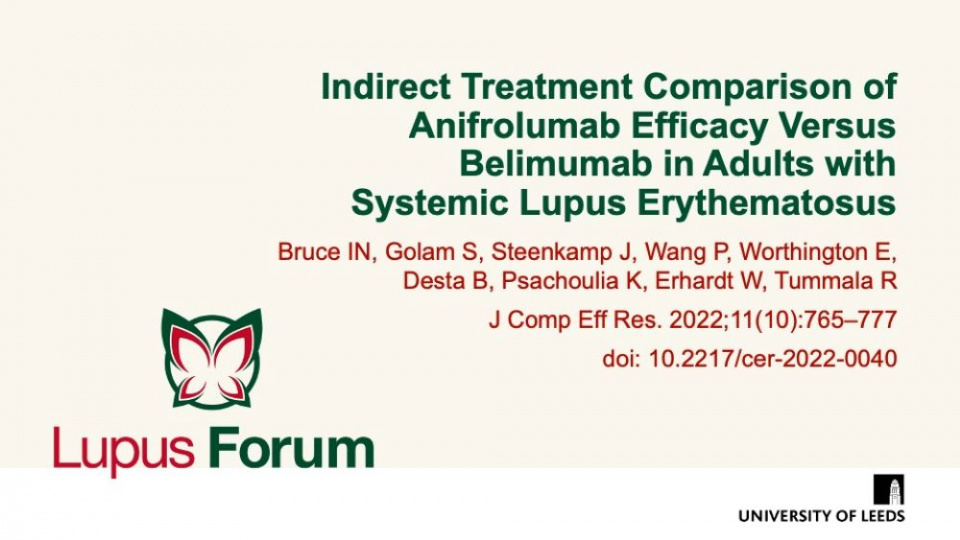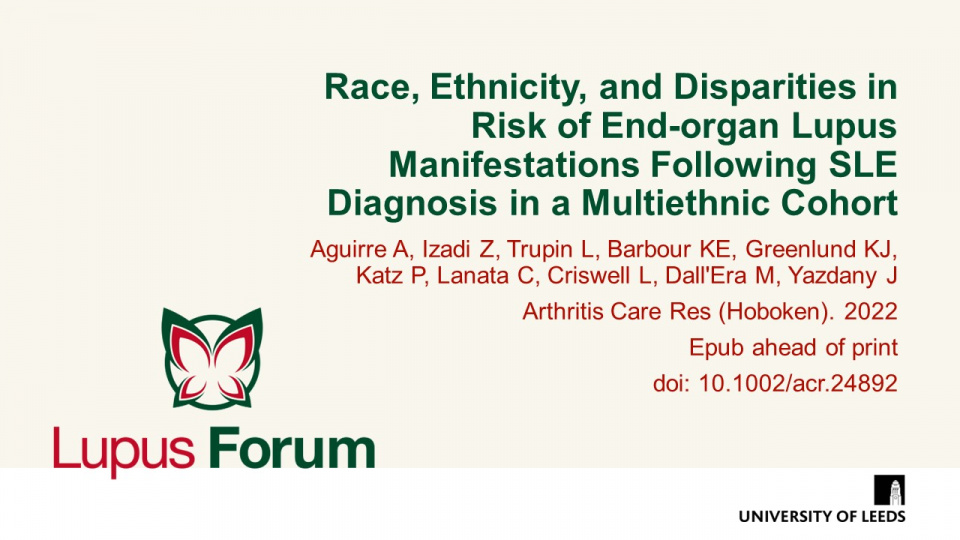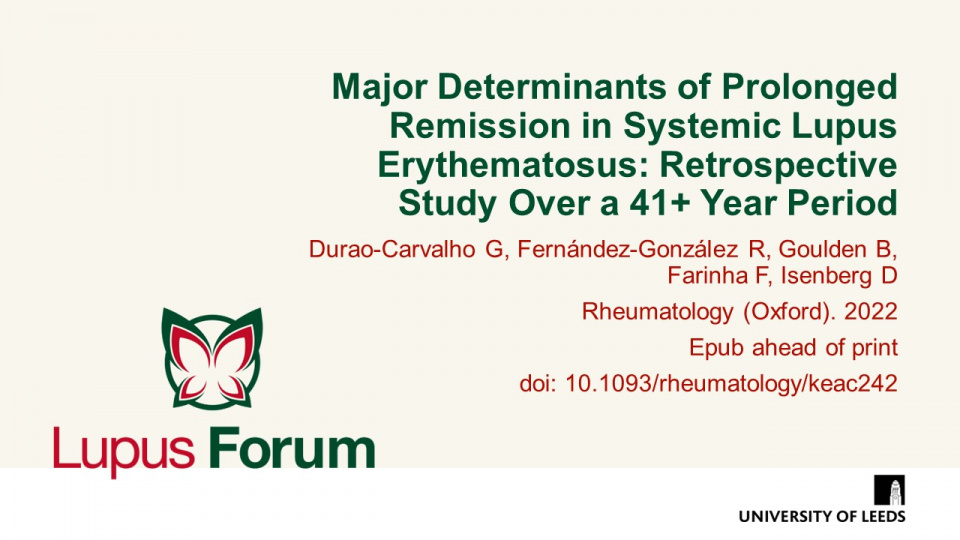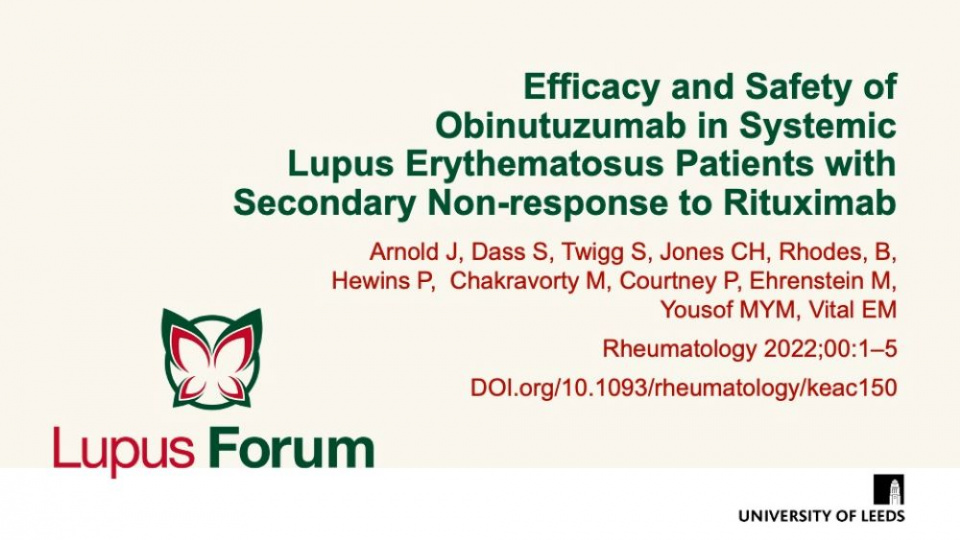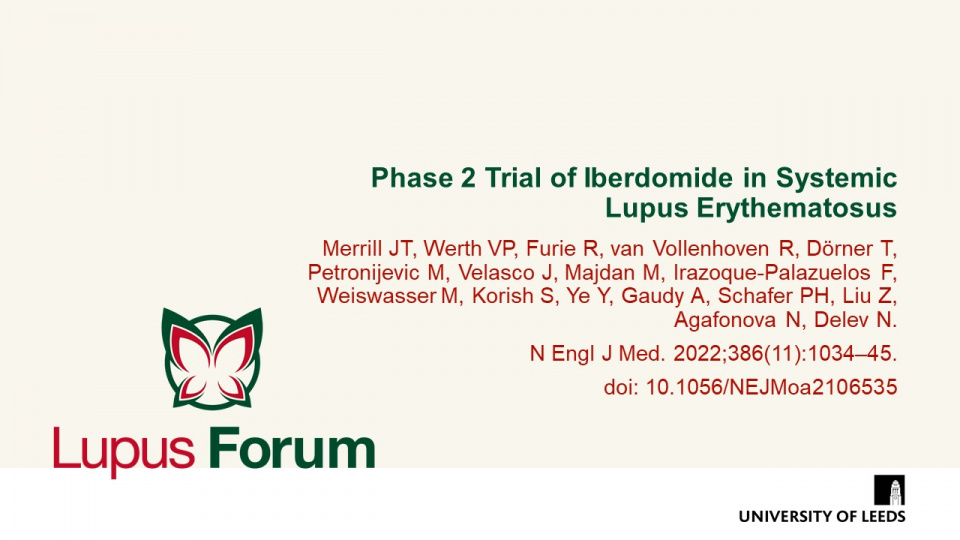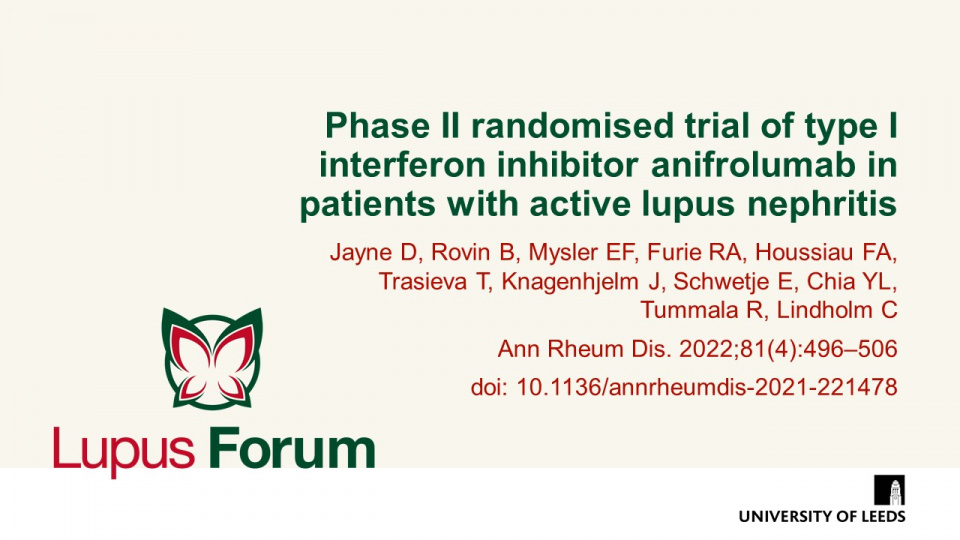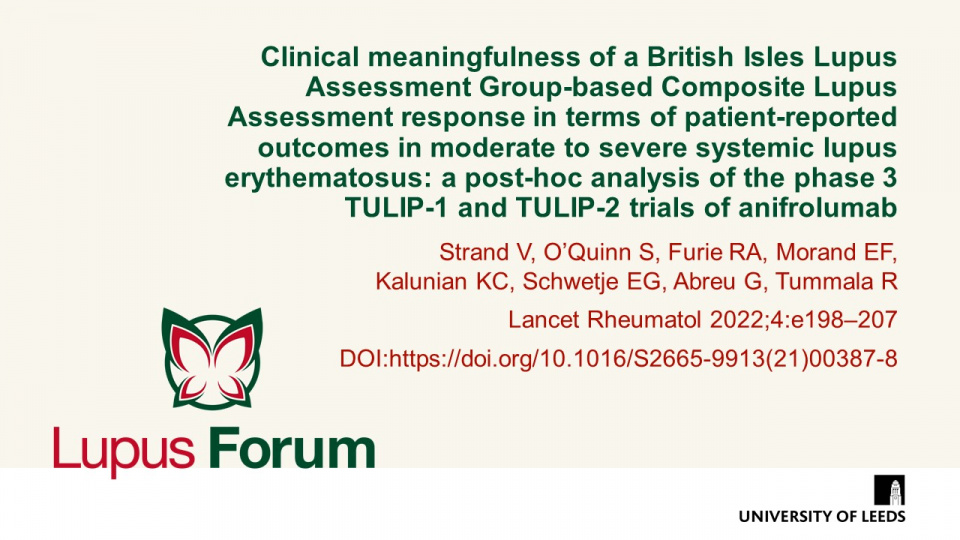Publications
Find coverage of the latest original articles on Lupus, focusing on those with data on therapeutic interventions and those that have clinical impact.
This activity is supported by an educational grant from AstraZeneca.
Indirect treatment comparison of anifrolumab efficacy versus belimumab in adults with systemic lupus erythematosus
J Comp Eff Res. 2022;11(10):765–777 doi: 10.2217/cer-2022-0040
Population-adjusted comparative study provides insights for decision makers and clinicians about the comparative efficacy of anifrolumab and belimumab in patients with moderate-to-severe systemic lupus erythematosus (SLE) who are receiving standard therapy.
In the absence of head-to-head comparisons, Bruce, et al. assessed the comparative efficacy of the two biological therapies currently approved in the EU and USA for the treatment of moderate-to-severe SLE (anifrolumab 300 mg and belimumab 10 mg/kg).
After adjusting for important cross-trial differences, their results showed that anifrolumab was associated with significantly greater treatment benefits than belimumab.
Keywords:
Biological impact of iberdomide in patients with active systemic lupus erythematosus
doi: 10.1136/annrheumdis-2022-222212
Phase 2b study evaluating the pharmacodynamics and pharmacokinetics of oral iberdomide in patients with active SLE demonstrates that iberdomide significantly improves lupus disease activity and reduces hallmarks of the immunopathogenesis of SLE.
Keywords:
Impact of belimumab on organ damage in systemic lupus erythematosus
Arthritis Care Res (Hoboken). 2022 Epub ahead of print doi: 10.1002/acr.24901
Review of clinical trial and real-world data on the effects of belimumab on organ damage in adult patients with SLE shows that belimumab reduces key drivers of organ damage, decreases organ damage progression and, in those with lupus nephritis (LN), decreases renal-related events.
Keywords:
Race, Ethnicity, and Disparities in Risk of End-organ Lupus Manifestations Following SLE Diagnosis in a Multiethnic Cohort
Arthritis Care Res (Hoboken). 2022 Epub ahead of print doi: 10.1002/acr.24892
California Lupus Epidemiology Study (CLUES) finds heightened risks of developing renal, haematologic, and multiorgan disease following SLE diagnosis among Hispanic and Asian patients with SLE.
Keywords:
Major Determinants of Prolonged Remission in Systemic Lupus Erythematosus: Retrospective Study Over a 41+ Year Period
Rheumatology (Oxford). 2022 Epub ahead of print
Retrospective observational study over a 41-year period finds complete remission (CR) in SLE to be associated with Caucasian race, older age at diagnosis, absence of renal involvement and absence of antiphospholipid syndrome.
Efficacy and Safety of Obinutuzumab in Systemic Lupus Erythematosus Patients with Secondary Non-response to Rituximab
Rheumatology 2022;00:1–5 DOI.org/10.1093/rheumatology/keac150
Arnold, et al. present the first case series reporting the efficacy and safety of obinutuzumab in patients with treatment refractory SLE. The results indicate that, for this group of patients with limited treatment approaches, obinutuzumab could be a potential option.
Keywords:
Phase 2 Trial of Iberdomide in Systemic Lupus Erythematosus
Kidney Int Rep. 2021;7(3):516-525 doi: 10.1056/NEJMoa2106535
This Phase 2 trial evaluated iberdomide in patients with moderate-to-severe systemic lupus erythematosus (SLE).
Long-Term Results of Triple Immunosuppression With Tacrolimus Added to Mycophenolate and Corticosteroids in the Treatment of Lupus Nephritis
Kidney Int Rep. 2021;7(3):516–25
Analysis of 22 patients with lupus nephritis (LN) demonstrates that triple immunosuppression with the addition of tacrolimus to mycophenolate and prednisolone results in further proteinuria reduction.
Phase II randomised trial of type I interferon inhibitor anifrolumab in patients with active lupus nephritis
Ann Rheum Dis. 2022;81(4):496–506 doi: 10.1136/annrheumdis-2021-221478
Despite not meeting the primary endpoint, this Phase II trial of anifrolumab in patients with active lupus nephritis (LN) demonstrates that anifrolumab IR is associated with numerical improvements over placebo across endpoints – including complete renal response – in patients with active LN.
Keywords:
Clinical meaningfulness of a British Isles Lupus Assessment Group-based Composite Lupus Assessment response in terms of patient-reported outcomes in moderate to severe systemic lupus erythematosus: a post-hoc analysis of the phase 3 TULIP-1 and TULIP-2 trials of anifrolumab
Lancet Rheumatol 2022;4:e198–207
In patients with moderate-to-severe SLE, British Isles Lupus Assessment Group-based Composite Lupus Assessment (BICLA) responders report improvements in disease activity, health-related quality of life, fatigue, and pain.


